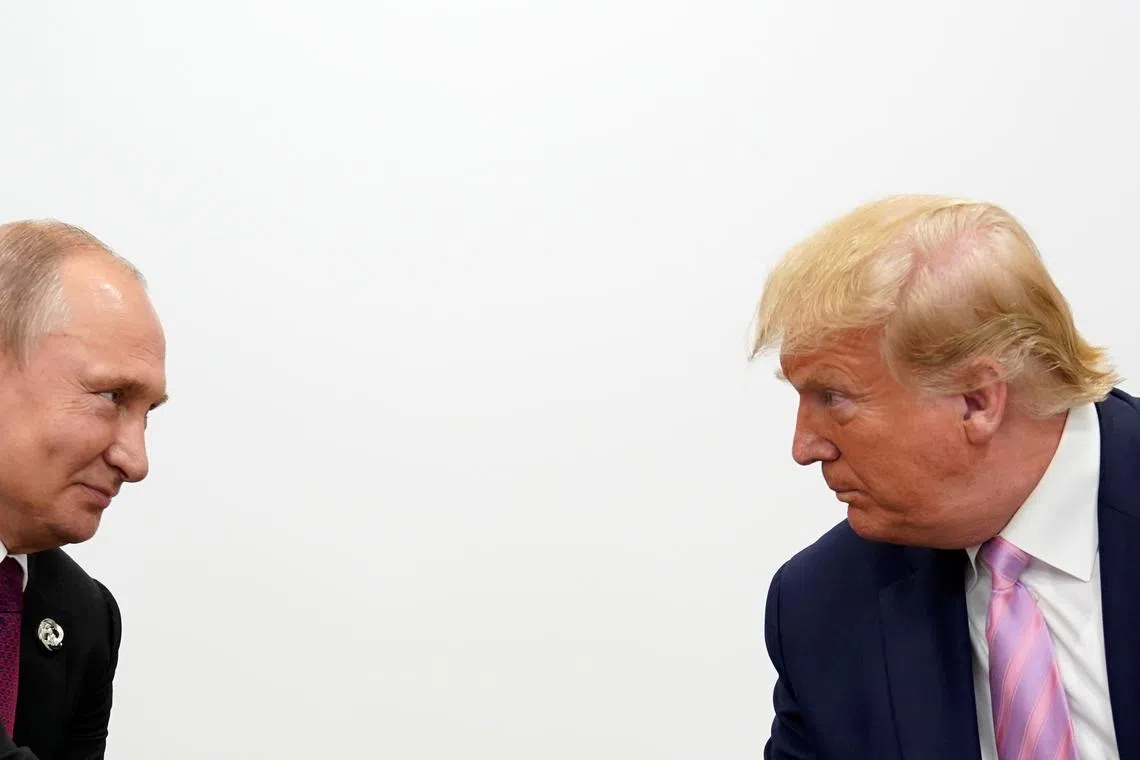Kremlin urges caution with nuclear rhetoric after Trump’s submarine order
Sign up now: Get ST's newsletters delivered to your inbox

US President Donald Trump and Russian President Vladimir Putin are in a stand-off over the war in Ukraine.
PHOTO: REUTERS
Follow topic:
MOSCOW – The Kremlin said on Aug 4 everyone should be careful about nuclear rhetoric, in its first response to a statement by US President Donald Trump that he has ordered a repositioning of American nuclear submarines.
Kremlin spokesman Dmitry Peskov played down the significance of Mr Trump’s announcement on Aug 1 that he ordered two submarines about the risk of war
“In this case, it is obvious that American submarines are already on combat duty. This is an ongoing process, that’s the first thing,” Mr Peskov told reporters.
“But in general, of course, we would not want to get involved in such a controversy and would not want to comment on it in any way,” he added. “Of course, we believe that everyone should be very, very careful with nuclear rhetoric.”
Mr Peskov said Russia does not see Mr Trump’s statement as marking an escalation in nuclear tension.
“We do not believe that we are talking about any escalation now. It is clear that very complex, very sensitive issues are being discussed, which, of course, are perceived very emotionally by many people,” he said.
Mr Peskov declined to answer directly when asked whether the Kremlin tried to warn Mr Medvedev to tone down his online altercation with Mr Trump.
“Listen, in every country, members of the leadership… have different points of view on events that are taking place, different attitudes. There are people who are very, very tough-minded in the United States of America and in European countries, so this is always the case,” he said.
“But the main thing, of course, is the position of President (Vladimir) Putin,” he said. “You know that in our country, foreign policy is formulated by the head of state, that is, President Putin.” REUTERS

